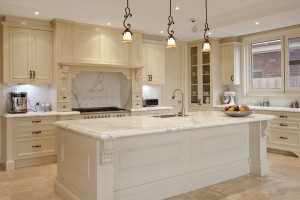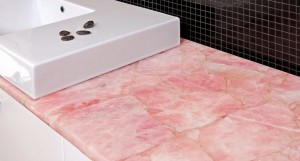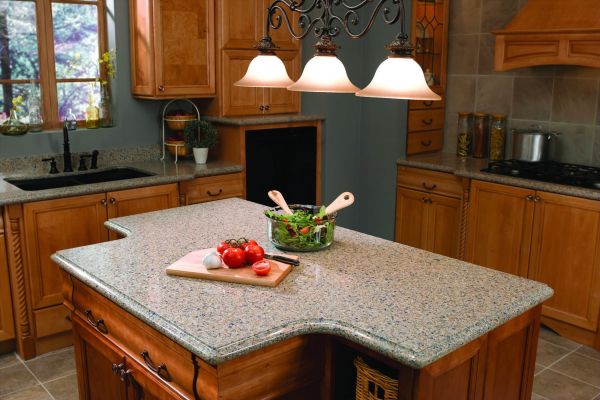Contemporary kitchen designs have embraced a variety of materials to create functional and visually appealing spaces. Among the most popular choices for countertops is quartz, an engineered stone that combines durability and elegance. This blog post explores the significance of quartz countertops in present-day kitchens, discussing their composition, benefits, and the creativity they inspire in home design.
The Allure of Quartz

Quartz countertops have gained significant popularity in contemporary kitchen designs, and for good reason. Composed of approximately 90-95% ground quartz and 5-10% polymers, resins, and pigments, these surfaces offer the perfect balance between aesthetics and practicality. The engineering process results in a material that is harder than granite and boasts a uniform appearance with endless customization options.
Maintenance Made Easy
Maintenance is often a concern when selecting countertop materials, but quartz offers remarkable ease of care. Thanks to its non-porous nature, quartz does not require sealing like many natural stones. Cleaning is straightforward—usually just soap, water, and a soft cloth suffice. This low-maintenance aspect is particularly appealing for those with busy lifestyles who still want a beautiful kitchen. In addition to being easy to maintain, the wide availability of quartz options allows homeowners to choose from a vast quartz slab inventory, ensuring that they can find the perfect match for their design preferences.
Creating a Contemporary Space
Quartz countertops lend themselves well to contemporary design principles, which prioritize clean lines, simplicity, and functionality. Their sleek, polished appearance complements minimalist cabinetry and modern appliances, creating a cohesive and stylish kitchen environment. Additionally, quartz can be seamlessly integrated with other materials, such as glass, wood, and stainless steel, to achieve a balanced and harmonious look.
Durability and Strength
One of the standout features of quartz countertops is their exceptional durability. Unlike natural stones such as marble and granite, quartz is non-porous, meaning it is resistant to stains, bacteria, and mold. This makes it an ideal choice for kitchen environments where hygiene and cleanliness are paramount. Additionally, quartz is highly resistant to scratches, making it perfect for busy households and avid home cooks.
Customization Options
Quartz countertops offer a plethora of customization options that allow homeowners to truly personalize their kitchen spaces. From selecting the type of edge profiles to choosing from a variety of color mixtures, the possibilities are nearly endless. This level of customization means that each countertop can be a unique piece tailored to the specific tastes and requirements of the homeowner. Whether you prefer a matte finish or a high-gloss surface, quartz can accommodate these preferences, making your kitchen truly distinctive.
Design Versatility

The versatility of quartz is another reason why it is favored in contemporary kitchen designs. Available in a wide range of colors, patterns, and finishes, quartz countertops can complement any design aesthetic. From sleek, minimalist kitchens to more eclectic and vibrant spaces, quartz can be curated to match the homeowner’s vision. Its consistent pattern also simplifies the process of matching slabs for larger kitchen islands and countertops.
Investment Value

Investing in quartz countertops can also add significant value to your home. Because of their durability and long-lasting appeal, quartz countertops are seen as a premium feature in real estate markets. This can enhance the resale value of your property, attracting potential buyers who are willing to pay a premium for quality materials. In addition, the timeless elegance of quartz ensures that it remains a desirable feature for years to come, making it a wise investment for homeowners planning to sell their homes in the future.
Environmental Considerations
In an era where sustainability is a growing priority, it’s important to consider the environmental impact of building materials. Quartz countertops often use recycled materials in their composition, making them a more eco-friendly option compared to some other stone surfaces. Moreover, the longevity and durability of quartz mean less frequent replacements, which contributes to reduced waste in the long run.
Real-life Inspirations
For anyone considering the addition of quartz countertops to their kitchen, there are endless real-life inspirations available. Home improvement magazines, interior design websites, and social media platforms are filled with stunning examples of quartz countertops in various kitchen settings. These resources can provide valuable ideas and help you visualize how quartz can transform your kitchen into a functional and stylish space. Seeing how others have successfully integrated quartz into their designs can spark your creativity and ensure you make the best choice for your home.
Innovative Applications
While countertops are the most common application for quartz, its versatility extends beyond. Consider using quartz for backsplashes, waterfall edges, and even integrated sinks. These creative applications can elevate the overall design of the kitchen, creating a unified and sophisticated space. Additionally, quartz’s durability makes it suitable for high-traffic areas, ensuring that it remains a stunning focal point for years to come.
Conclusion
Quartz countertops have firmly established themselves as a staple in contemporary kitchen designs. Their blend of durability, aesthetic appeal, and low maintenance requirements make them an excellent choice for homeowners seeking both beauty and practicality. As kitchens continue to evolve as multi-functional spaces, incorporating quartz can help create a timeless, functional, and stylish environment. Whether you’re renovating an existing kitchen or designing a new one, consider the endless possibilities that quartz countertops can offer.
Article by Community Writer.




